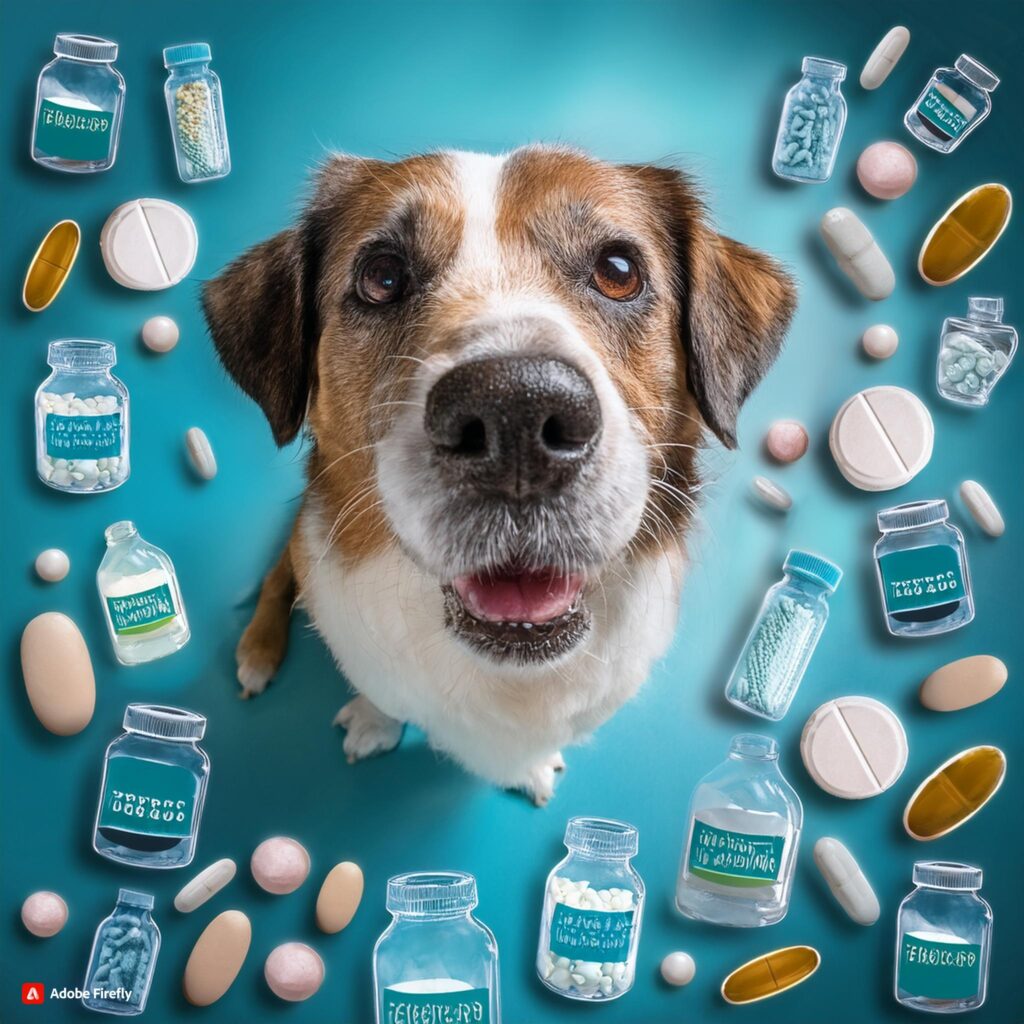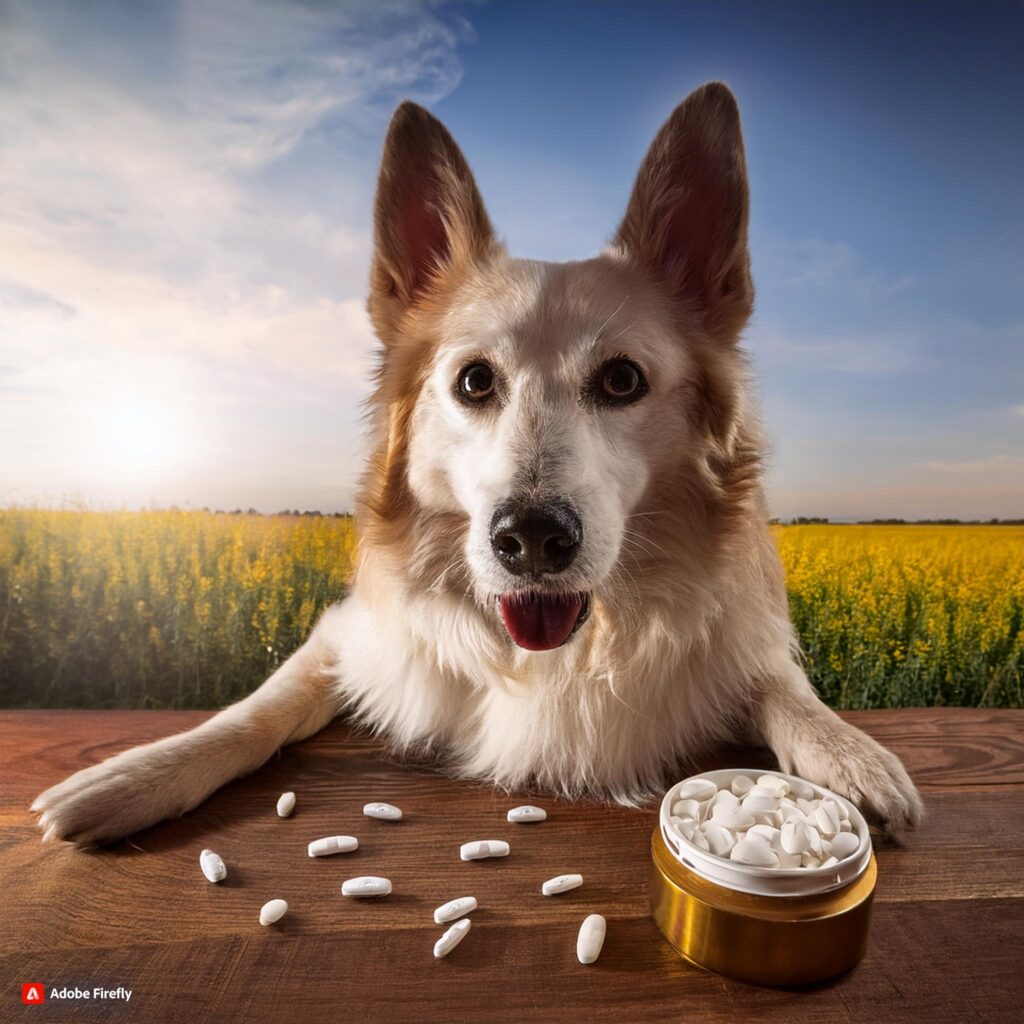Hey there, fellow dog lover! If you’re reading this, chances are you’re someone who really cares about your furry friend’s health, and that’s awesome. We all want our dogs to live long, happy lives, and a big part of that is making sure their tummies are in tip-top shape. Yup, we’re talking about gut health today—and more specifically, sources of probiotics for your dog. You’ve probably heard the term thrown around a lot, but what exactly are probiotics, and why should you care about them when it comes to your pup? Let’s dive in and find out!

Why Probiotics Are Important for Dogs
Just like us humans, dogs have a whole world of bacteria living in their guts. Some of these bacteria are good, and some… not so much. Probiotics are the good guys—these are the friendly bacteria that help keep your dog’s digestive system running smoothly.
So, what do probiotics actually do? For starters, they help with digestion by breaking down food and absorbing nutrients. But that’s not all. Probiotics also play a big role in keeping your dog’s immune system strong, fighting off harmful bacteria, and even affecting their mood and behavior. Yup, you heard that right—a healthy gut can mean a happier, less anxious dog.
Let’s break it down a bit more:
- Digestive Benefits: Probiotics help balance the bacteria in your dog’s gut, making sure there’s more of the good stuff and less of the bad. This balance is crucial for proper digestion and can help prevent issues like diarrhea, constipation, and bloating.
- Immune Support: A lot of your dog’s immune system is actually located in their gut. Probiotics can help boost their natural defenses, making them less likely to get sick.
- Mood and Behavior: Believe it or not, there’s a connection between the gut and the brain, often referred to as the “gut-brain axis.” A healthy gut can lead to a calmer, happier dog, while an imbalance in gut bacteria might contribute to anxiety or stress.
Pretty cool, right? But how do you know if your dog could benefit from more probiotics? Let’s look at some common signs.
Common Signs Your Dog Needs More Probiotics
Dogs can’t exactly tell us when something’s off, but they do give us plenty of clues. If you’re noticing any of these issues, it might be time to think about adding some probiotics to their diet:
- Digestive Issues: If your dog is dealing with frequent diarrhea, constipation, or just a generally upset stomach, their gut bacteria might be out of whack. Probiotics can help restore the balance and get things back on track.
- Skin Problems: Believe it or not, a lot of skin issues are actually linked to gut health. If your dog is dealing with itchy skin, rashes, or hot spots, probiotics might help clear things up from the inside out.
- Allergies: Dogs with food or environmental allergies might benefit from probiotics. A healthy gut can help strengthen the immune system and reduce allergic reactions.
- Behavioral Changes: If your dog is suddenly more anxious, stressed, or just not acting like themselves, an imbalance in gut bacteria could be part of the problem. Probiotics can help support a healthy gut-brain connection.
- Lethargy: A dog who seems tired all the time might not be getting the nutrients they need, even if they’re eating a balanced diet. Probiotics can help improve nutrient absorption, giving your dog more energy and vitality.
Okay, so now we know why probiotics are important and how to tell if your dog might need them. But what’s the best way to get probiotics into your dog’s system? Let’s talk about natural sources of probiotics that are easy to incorporate into your dog’s diet.
Natural Sources of Probiotics for Dogs
When it comes to probiotics, you’ve got a few options. You can go the supplement route, which is totally fine, but there’s something to be said for getting your probiotics from natural sources. Not only can these be more palatable for your dog, but they’re also packed with other nutrients that can benefit their overall health. Here are some of the best natural sources of probiotics for dogs:
Yogurt and Kefir
Yogurt is probably the first thing that comes to mind when you think about probiotics, and for good reason. It’s packed with live cultures that can help boost your dog’s gut health. Plain, unsweetened yogurt is the way to go—avoid anything with added sugar or artificial sweeteners, especially xylitol, which is toxic to dogs.
Kefir is like yogurt’s cousin—it’s a fermented milk drink that’s also loaded with probiotics. Kefir tends to have more strains of beneficial bacteria than yogurt, making it an even better option if your dog can tolerate it. You can add a spoonful of yogurt or a splash of kefir to your dog’s food a few times a week.
Fermented Vegetables
Fermented veggies aren’t just for humans! Dogs can benefit from them too. Foods like sauerkraut (fermented cabbage) or other naturally fermented vegetables are rich in probiotics. Just be sure to give your dog plain, unseasoned versions—skip the stuff that’s loaded with garlic, onions, or spices, as these can be harmful to dogs. Start with a small amount, as fermented foods can be potent.
Raw Goat’s Milk
Raw goat’s milk is a bit of a superfood when it comes to probiotics. It’s gentle on the stomach, making it a great option for dogs with sensitive digestive systems. Plus, it’s loaded with enzymes and beneficial bacteria that can help support your dog’s gut health. You can find raw goat’s milk at many pet stores or specialty grocery stores. Just pour a little over your dog’s food or serve it as a treat.
Green Tripe
This one might sound a bit gross to us, but dogs absolutely love it. Green tripe is the nutrient-rich stomach lining of ruminant animals (like cows and sheep) and is loaded with probiotics and digestive enzymes. It’s also packed with essential fatty acids and other nutrients that can benefit your dog’s overall health. You can find green tripe in canned or raw form—just make sure it’s unprocessed and untreated.
Apple Cider Vinegar
Apple cider vinegar (ACV) is another natural source of probiotics that’s easy to add to your dog’s diet. Look for raw, unfiltered ACV with the “mother” (that cloudy stuff at the bottom of the bottle), as that’s where all the beneficial bacteria are hanging out. ACV can help balance your dog’s gut bacteria, and it also has antibacterial and antifungal properties. Start with just a teaspoon mixed into your dog’s water or food, and see how they like it.

How to Incorporate Natural Probiotics into Your Dog’s Diet
Now that you’ve got some great options for natural probiotics, how do you actually get your dog to eat them? Here are a few tips to make the transition smooth and easy:
- Start Slow: If your dog isn’t used to these foods, start with small amounts and gradually increase the dosage. This will help prevent any digestive upset as their system adjusts.
- Mix It Up: Some dogs can be picky, so try offering different probiotic foods to see what they like best. You can also mix probiotics into their regular food to make it more appealing.
- Stick to a Schedule: Consistency is key when it comes to probiotics. Try to incorporate them into your dog’s diet regularly, whether it’s daily or a few times a week.
- Combine Sources: You don’t have to stick to just one source of probiotics—feel free to mix and match! For example, you could add a spoonful of yogurt to your dog’s breakfast and some fermented veggies to their dinner. This variety can help ensure they’re getting a wide range of beneficial bacteria.
Monitor Their Progress: Keep an eye on your dog’s digestion, energy levels, and overall health as you start adding probiotics to their diet.
How much probiotics can you give to your dog?
Risks and Considerations
As awesome as probiotics are, there are a few things to keep in mind before you dive in:
- Potential Side Effects: Some dogs might experience mild digestive upset, like gas or diarrhea, when they first start taking probiotics. This is usually temporary, but if it persists, it’s a good idea to cut back on the dosage and introduce the probiotics more slowly.
- Allergies: While rare, some dogs might be allergic to certain probiotic foods. If you notice any signs of an allergic reaction—like itching, swelling, or difficulty breathing—stop giving the probiotic and consult your vet.
- Consult with Your Vet: It’s always a good idea to talk to your vet before making any major changes to your dog’s diet. They can provide personalized advice and help you choose the best probiotic sources for your dog’s specific needs.
Probiotics are a fantastic way to support your dog’s health, from their digestion to their immune system and even their mood. And the best part? You don’t have to rely on supplements—there are plenty of natural sources of probiotics that are easy to incorporate into your dog’s diet. Whether it’s a spoonful of yogurt, a splash of kefir, or a bit of green tripe, these foods can help keep your dog’s gut happy and healthy. So why not give it a try? Your dog will thank you!









